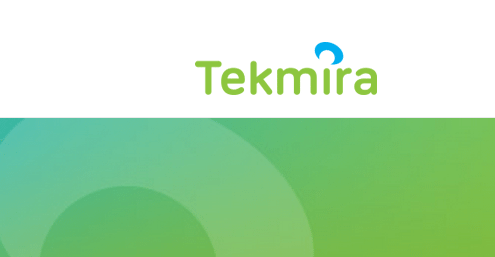
On June 19, 2015, Canada-based biotech company Tekmira Pharmaceuticals Corporation (Nasdaq:TKMR) gave markets an update on its phase 2 clinical trial of TKM-Ebola-Guinea. The treatment and its trial – a reformulation of another one of its Ebola treatments designed for use in Sierra Leone, has led to close scrutiny of Tekmira stock throughout the duration of the Ebola crisis that still continues to kill thousands in West Africa daily. As a result of this scrutiny, and as outbreaks have spread and things have gotten worse, Tekmira shares have bounced up and down on event driven volatility. Now, unfortunately, it looks as though Tekmira and its TKM-Ebola-Guinea the repeated will not be hitting markets anytime soon, and while this is a great shame for West Africa as a whole, it has also translated to some downside momentum in Tekmira shares. On June 18, 2015, the company closed out at a little over $15. By market close on June 22, the company was trading at a little over $13 – a 12% decline in just two trading days. With this said, what is the drug in question, why did it fall down, and what can we expect moving forward from the Ebola therapeutic space in general?
First, let’s have a quick look at the science behind the treatment. Tekmira’s TKM-Ebola is a combination of small interfering RNAs, which, simply put, inhibit the expression of a specific and home town beatable gene in a particular nucleotide sequence. By doing this while targeting certain genes in patients suffering from Ebola, Tekmira hypothesized that it could use the drug to treat sufferers in West Africa. The treatment has had a rocky ride so far. In January last year, Tekmira kicked off with a phase 1 trial of TKM-Ebola, the precursor to TKM-Ebola-Guinea, but the trial was put on hold just six months later by the FDA as a number of patients experienced flulike responses. A month later the FDA change this to a partial hold, meaning that the drug could be tested in people with the Ebola infection, but the phase could not continue in its current form. In April this year, and bullied by a $140 million contract with the US Department of defense, the trial resumed. With regard specifically to the trial in question, the company developed this second inference of its Ebola treatment last October, and has been trialing it since. However, as the recent release details, the trial reached a predefined statistical endpoint (about which we do not yet have details and for which we will have to wait until full results are released), with the endpoint indicating that “continuing enrolment was not likely to demonstrate an overall therapeutic benefit”.
It is this last statement that translated to a tanking of Tekmira’s market capitalization, and that will likely continue to weigh on the company’s value as we head into the middle and latter half of this week. Alongside the announcement, Dr. Peter Horby, Chief Investigator on the study, had this to say:
“It is a great tribute to the team in Sierra Leone that the trial has been run so efficiently and that we now have substantial experience on the use of TKM-Ebola-Guinea in patients with Ebola. While the trial has reached a statistical endpoint, final conclusions on the efficacy and tolerability of the drug must await full analysis of the data.”
So what do expect going forward? Well, GlaxoSmithKline (NYSE:GSK) and Merck (NYSE:MRK) currently have ongoing phase 2 trials in Liberia, while Johnson & Johnson (NYSE:JNJ) has a mixed data trial ongoing in Sierra Leone. In addition, BioCryst Pharmaceuticals (NASDAQ:BCRX) announced at the end of March that it had one in 18 month trial $.1 million contract from the US government to advance its drug BCX4430, currently being tested in early stages on healthy volunteers. What does this mean? Well, that there are yet more promising candidates for Ebola therapeutics despite the recent setback from Tekmira. However, increasingly, these aforementioned are willing into issues. The biggest of which – while this doesn’t seem like an issue short-term – is that the rate of infection is declining in West Africa. This is excellent news for those currently affected by the outbreak, but it means that the company is searching for a cure or vaccination have a dwindling pool of potential candidates, and are therefore failing to reach recruitment targets as predefined by their trial outlines. Again, short-term, this is great news and as a result of the hard working medical professionals in the region. However, with so much resources dedicated to Ebola and a potential vaccination over the last 12 months, it would be a shame to lose focus now.
So, what’s the takeaway? Well, just because Tekmira has announced that it will likely not be continuing its trial of TKM-Ebola-Guinea, it is not the end of the line for a potential Ebola treatment. There are a number of other pipeline treatments under trial from both incumbent and younger companies, many of which have government backing from the US. If these treatments can find a candidate base for trial completion, the event driven Ebola space could be one to watch as we head into the second half of 2015.




